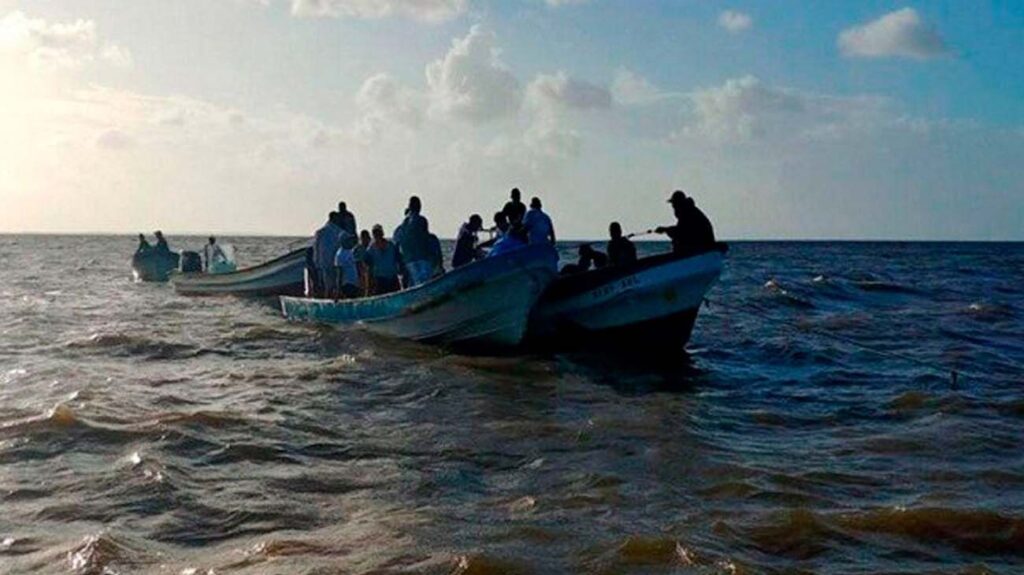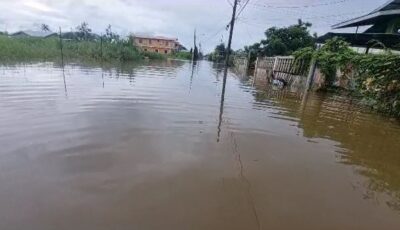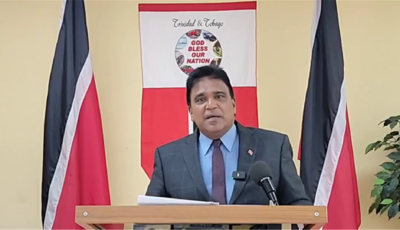MP For Caroni East – Infectious diseases threat from Venezuela puts the focus on our porous borders
 The Covid-19 Variant B.1.1.7. from the United Kingdom is more transmissible than the original strain of the virus. What this means is this novel variant, went from being very rare to very common. And based on the rate of increase, they estimate that it was around 50 % or so more transmissible than the original virus. The second way to determine how transmissible the variant can spread is through something called the “secondary attack rate.” Which is to look and see how many of an infected person’s contacts got infected. Here too, there was also a 50 % increase.
The Covid-19 Variant B.1.1.7. from the United Kingdom is more transmissible than the original strain of the virus. What this means is this novel variant, went from being very rare to very common. And based on the rate of increase, they estimate that it was around 50 % or so more transmissible than the original virus. The second way to determine how transmissible the variant can spread is through something called the “secondary attack rate.” Which is to look and see how many of an infected person’s contacts got infected. Here too, there was also a 50 % increase.
How does this more transmissible variant translate into risk? This variant of Covid-19 is not spreading in our local population, there is no trajectory of cases that we should expect in the coming days. With respect to the Covid-19 Variant from the UK, the system has worked, it allows for returning nationals to be tested and placed into quarantine before they can mix with the general population. This shows us that we can safely repatriate our citizens from infected countries and safely reunite them with their families in Trinidad and Tobago without endangering our citizens. This simply shows that the process works.
The real threat to our country is not only from the UK variant but through our porous border with the South American mainland. The Covid-19 Variant from Brazil. Last month, scientists in Brazil detected a new genetic variant of the coronavirus that has been circulating in Manaus, Brazil. Called P.1, the variant has mutations could make the virus more infectious and could possibly decrease the efficacy of vaccines against the variant.
This P.1 variant also has an “escape mutation” which helps the coronavirus evade protective antibodies generated by earlier infections, as well as making it less susceptible to antibody drugs. There’s growing evidence this new genetic variants of the coronavirus may be capable of evading the body’s immune system. And thus, mutations in these new variants could make it easier for some people to get Covid-19 a second time, says virologist Ravi Gupta at the University of Cambridge. P.1 was detected only a few weeks ago and it has been said that “Manaus is just a lighthouse that is pointing to what could happen in the rest of the world.” Brazil shares a border with Venezuela of 2,850 km.
Venezuela is particularly vulnerable to the wider effects of the pandemic because of its ongoing socioeconomic and political crisis causing massive shortages of food staples and basic necessities, including medical supplies. The mass emigration of Venezuelan doctors has also caused chronic staff shortages in hospitals. Venezuela’s tumbling economy and authoritarian rule have precipitated an unprecedented humanitarian crisis. The reemergence of arthropod-borne and vaccine-preventable diseases has sparked serious epidemics that also affect neighbouring countries. There are ongoing epidemics of measles and diphtheria, as well as the reemergence of poliomyelitis. We have little to no border control and thus we cannot say we have a quarantine policy for illegal immigrants because they come into our country undetected and integrate into our communities.
It is not only the Coronavirus and its Variants that we have to be concerned about. People move parasites more efficiently than mosquitoes do. The health problems in Venezuela are rapidly expanding to neighbouring countries, as people flee in search of medical attention and better living standards. Epidemiological surveillance in Venezuela has collapsed and as people migrate, there is little information about the infectious diseases they carry and poor tracing of the pathogens that cause them. Fluctuations in vaccination coverage have a lag period of several years, so it is possible that the worst of the health crisis in Venezuela is still to come.
Malaria follows the same trend, as reports from Venezuela’s neighbours Colombia and Brazil state that 80 per cent of cases detected in the border areas originate from Venezuela. As a consequence, the control measures established in these countries are jeopardized. And this is at risk of happening here. The return of measles and other vaccine-preventable childhood infections in Venezuela, as well as the potential for expansion of outbreaks beyond Venezuela’s borders, has been recognized by the World Health Organization (WHO) and the Pan American Health Organization (PAHO). Recent years have seen increased cases of measles, diphtheria, malaria, tuberculosis (Phillips, 2019), Chagas, and chikungunya (Hotez, 2017). These outbreaks not only threaten Venezuelan health but also endanger populations abroad, as more refugees flee the country. Venezuela also now claims one of the highest rates of HIV in the region.
The Venezuelan modern situation demonstrates the implications for a population’s health when political and economic national structures crumble. And this is not about Venezuela, migrants can come from any other country. While our healthcare system is failing our citizens, we are under threat from numerous disease being introduced into our country. More has to be done before it is too late for the citizens of our great nation.








